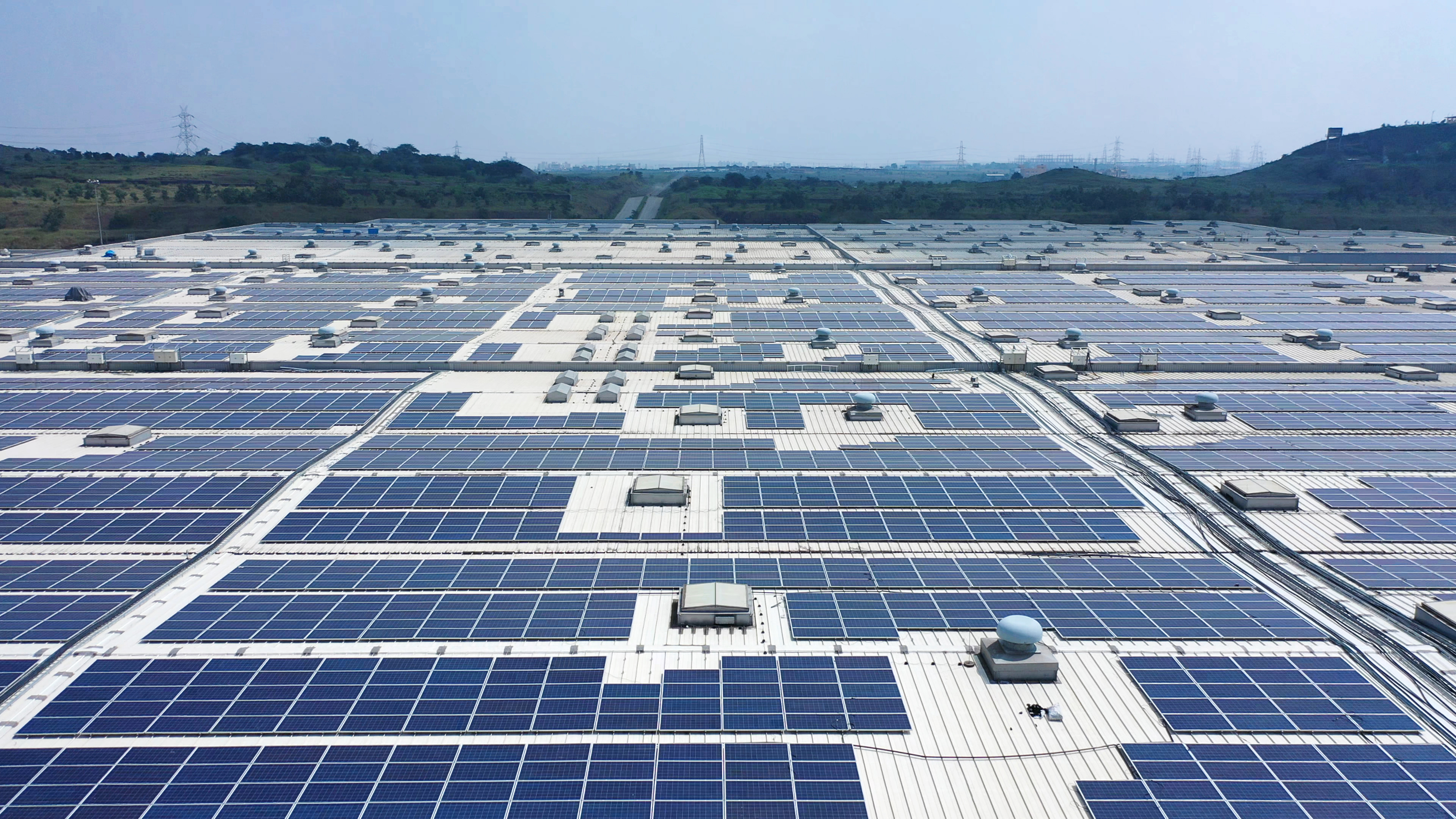Examples of sustainability measures at ŠKODA:
• In November 2020, ŠKODA completed the installation of a new photovoltaic system at its Kosmonosy service centre close to its headquarters in Mladá Boleslav. Covering over 2,200 square metres, the panels generate more than 450 MWh of sustainably produced energy a year.
• The biggest photovoltaic roof system in the Czech Republic, with almost 6,000 solar modules, is being built on the roofs of the ŠKODA Parts Center and logistics building. The solar panels’ nominal power is 2,300 kilowatts (kW) and annual electricity generation exceeds 2,200 megawatt hours (MWh).
• At the production plant in Pune, one of the biggest solar roof systems in India helps reduce the company’s carbon footprint significantly: 25,770 photovoltaic modules cover approx. 15 per cent of the plant’s annual electricity needs, cutting carbon dioxide emissions by 9,000 tonnes per year.
 The roof of the ŠKODA AUTO plant in Pune with solar panels.
The roof of the ŠKODA AUTO plant in Pune with solar panels.





















